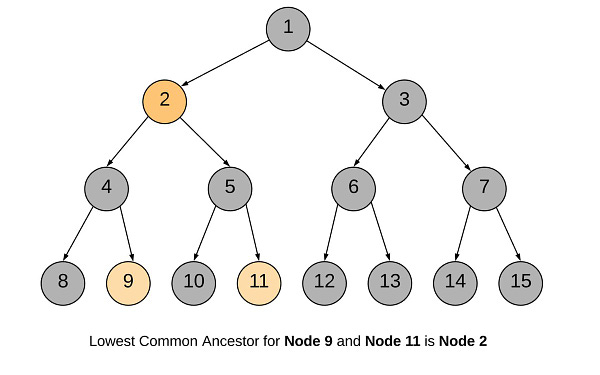I have two serious political posts in the pipeline that aren’t done: one on the minimum wage, and one on the political issues involved with naming things. So today, I’m going to try something slightly different.
Since the dawn of Twitter, “prominent people being wrong” has been an unsolved problem. One possible way to solve it is to use a different medium to comment on the wrong-ness. The goal is to discuss people who are frequently and recently wrong (a minimum of 5 objectionable tweets in the past 3 months), who are plausibly public figures, and to exclude people who are deliberately trolling (JD Vance) or who are discussed too frequently in the news media.
Today, I address @balajis, one Mr. Balaji Srinivasan, a person who once held the title of CTO of Coinbase. Apart from having the good luck to have started on Bitcoin early, I observe he is generally wrong about everything. Seven examples from his Twitter posts this month:


The most obvious flaw here is the idea that “crypto phones” should be created; they exist already and are called phones. The distinctions needed would be stupid (carry two pieces of hardware around instead of one?) and useless (if you assume unlimited back doors, they can still access your data when you use it). If you legitimately need to make sure you have an air-gap for your cryptography, you shouldn’t be doing it on an easily-stolen cellphone form factor. And the people who would actually be motivated by marketing for a “crypto phone” are generally more technically savvy than Mr. Srinivasan (who it appears is not a programmer) and would not buy the hype.

Another situation where the wrong problem leads to the wrong solution. I have struggled for years to put messages on the blockchain. With Bitcoin, all you can do is partial hash matches through fake target addresses (unless you are mining a block). I haven’t been able to figure it out with Ethereum either. Shitcoins (a term of art) may let you do this, but they are generally more centralized than Google; governed, mined, and cared-about only by a small set of people.
The claimed solution is already handled by Twitter; you get the same result for the same query (unless, like Mr. Srinivasan, you delete all your tweets to suck up to the Trump administration). The “censorship” described here in a negative light is effectively the same as “moderation”, which he endorses:


A “global moderator hierarchy” doesn’t solve any of the hard problems of moderation. It does create a feudal hierarchy, which is great for certain monarchists. The hardest problem of moderation is the cost of labor to do so; I assume people will say “AI” and ignore this. Most times on large platforms, moderation is about content forbidden on the platform (calls for violence, etc.) and a hierarchy will do nothing at all to help with that, it will just encourage systems to develop that will work against that goal.
But when platforms are moderated, moderation is really a form of curation, choosing bad content to not-show is similar to choosing good content to show. A focus on “disputes” is absurd; disputes are rare and difficult by nature, and if you optimize for solving them you will certainly just make them more common. And, again, this is the same thing as the “censorship” complained about earlier.


Mr. Srinivasan appears not to know what a private key is. There is a difference between authorization and authentication. Authorization is who you are. Authentication is how you say who you are. Both passwords and private keys are authentication technologies; you use them to verify your identity. All of the “users” tables have a globally unique primary key; whether that is an email address or a public key or a Google ID is largely irrelevant. You can use either method with blockchain or private companies. It doesn’t change how your identity authorization is managed at all.
But the linked article isn’t about private keys at all; it’s about “blockchain”, because everything Mr. Srinivasan talks about is about blockchain. The author presumes the data becomes public because blockchain makes that necessary; if “having all user data be public” was a good idea for any of these companies they would have done it already. The network effects of a shared user database are trivial. The size of your “users” database matters not, it is the number of active users that matter, or at least the number of users that have heard of your product. You can get a billion-user “users” database just by using the existing Google or Facebook authentication. (Well, technically, you won’t have explicit database rows for them, but the user experience will be exactly as-if those rows existed.)
I could write a formal review of that blog post, but in one of the most blatantly dishonest patterns I have seen, are offering $100 “rewards” for the best reviews. Which means favorable reviews, as “be constructive” is code for “don’t point out the entire article is an edifice of shit”. In other words, they are paying for astroturf promotion.

I must assume that, in carelessness, “screenshot” has replaced “screen scrape” in the Tweet. (Maybe he means photos of paper receipts?) Regardless, “screenshots and CSVs” is entirely wrong as a description of the existing method for tracking accounting. Bank card transactions already have APIs. This is literally a problem that has been solved multiple times. I am sure he has heard of Plaid, one of the companies that has done so.




No, the “pseudonymous economy” is not coming. If you believe in the coming AGI “apocalypse”, you will note that the only companies where pseudonymous work would be useful are the ones that will get replaced by AGI workers. Today, most companies do one better than “pseudonymous employees” regarding employee privacy: they have publicly anonymous employees, as they simply don’t advertise their full list of employees. And most useful business and all legal business requires some form of physical nexus of presence.
If you’re entering a full-time employment contract and aren’t willing to comply with basic paperwork such as Form I-9, the government will assume you have something to hide, and I will too. Do I really want to take the risk that my “pseudonymous” security engineer works out of the offices of Mossad, the NSA, or the Chinese government?


Nobody is moving to Guam because of the time zone. I’ll let somebody else make the “colonialism” argument as well as the “everything is expensive” argument. If you’re going to move halfway around the world, why not move to Sydney or Ho Chi Minh City or Phnom Penh? The obstacles to permanent residence for remote work can’t be that hard, especially if you’re working for a company in an Asian country. Or move to Portland, sleep till eleven, and work swing shift.
That’s seven. I could do seven more, starting with his take on how blockchain thought will cure aging. But I will not.
In conclusion: virtually everything Mr. Srinivasan says is wrong, and you shouldn’t believe him. Don’t like his posts, don’t re-tweet.
Subscribe to the Tisatsar Newslettr
A newslettr on many topics, including education, land usage, work, politics, philosophy, history, religion, etc.


